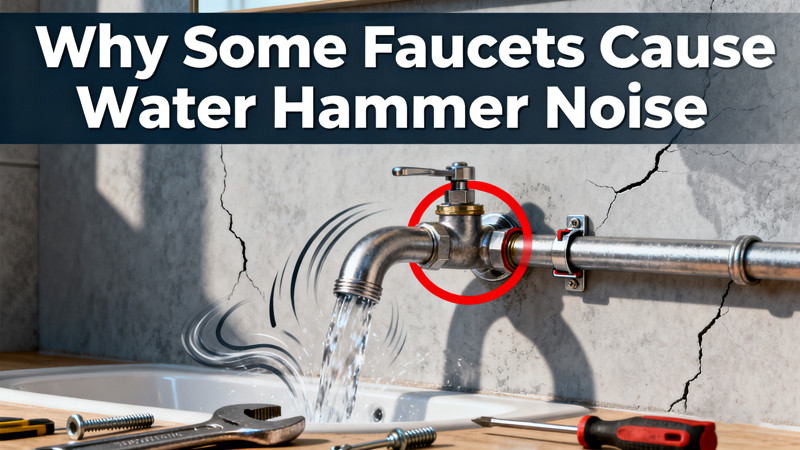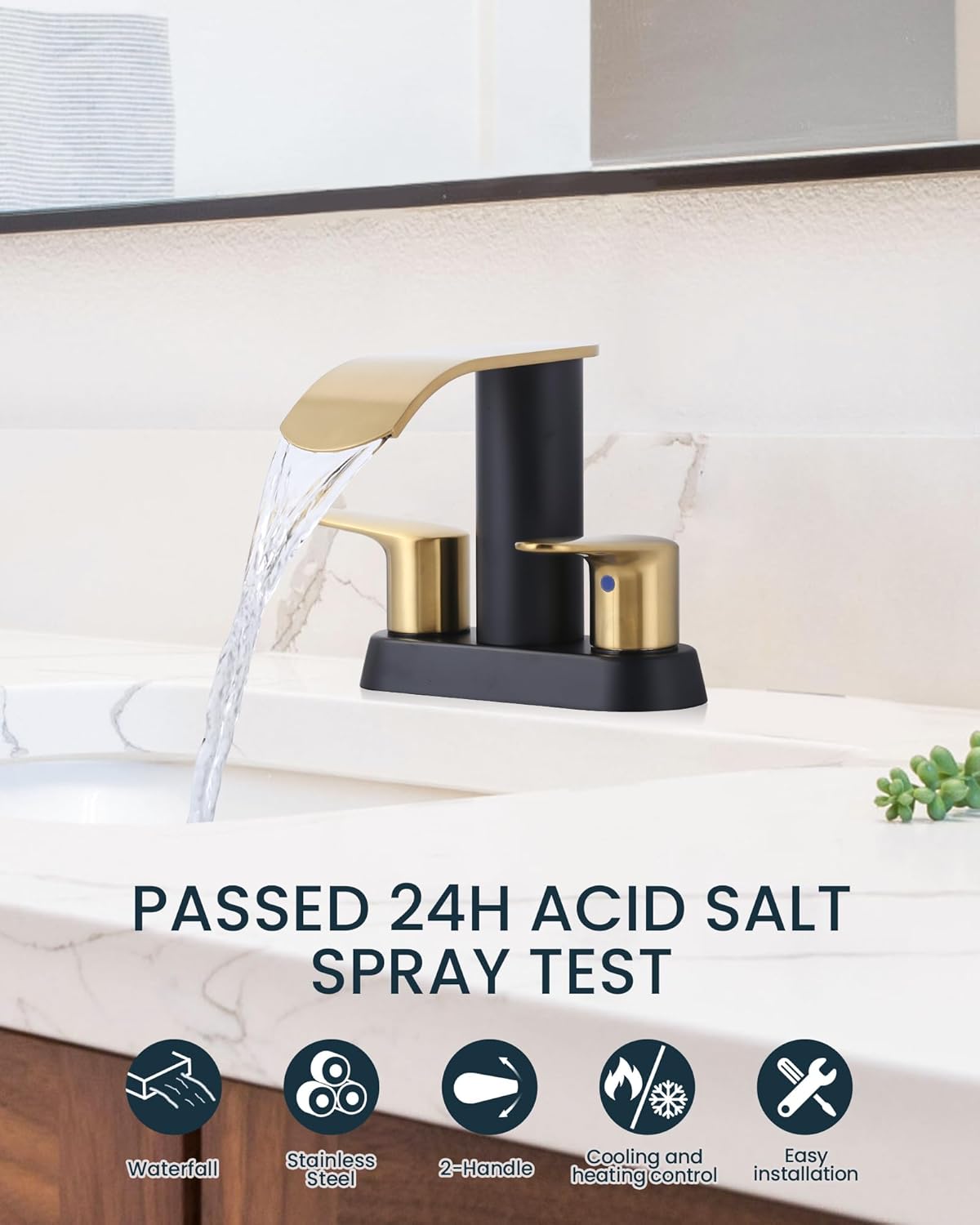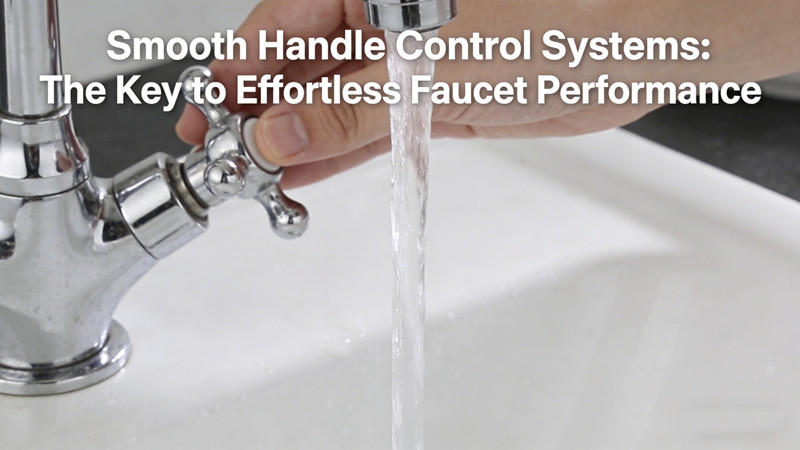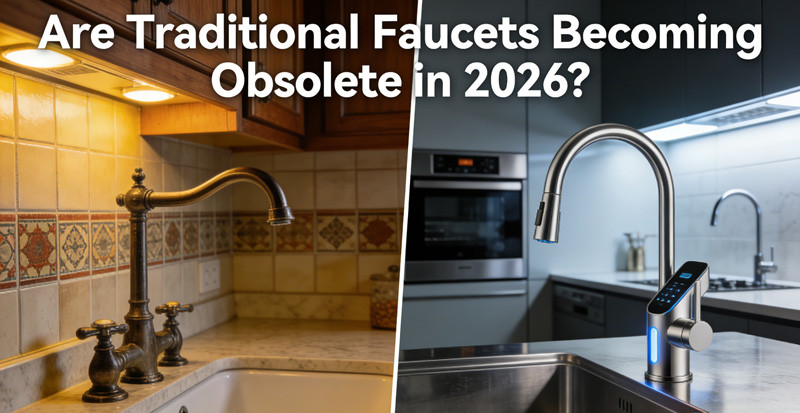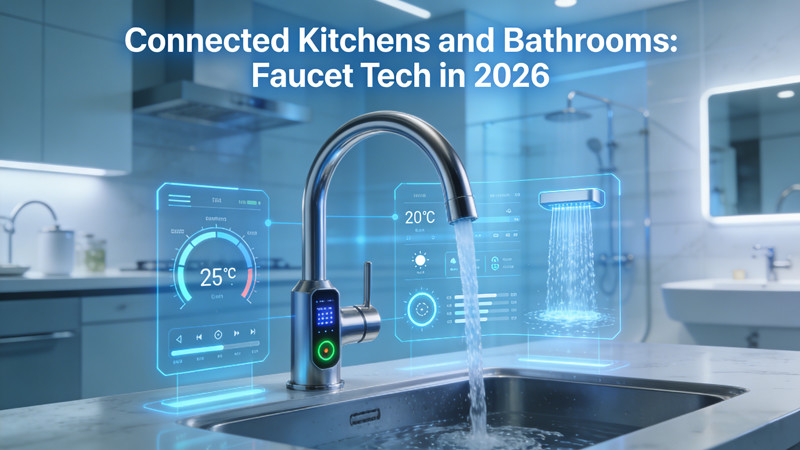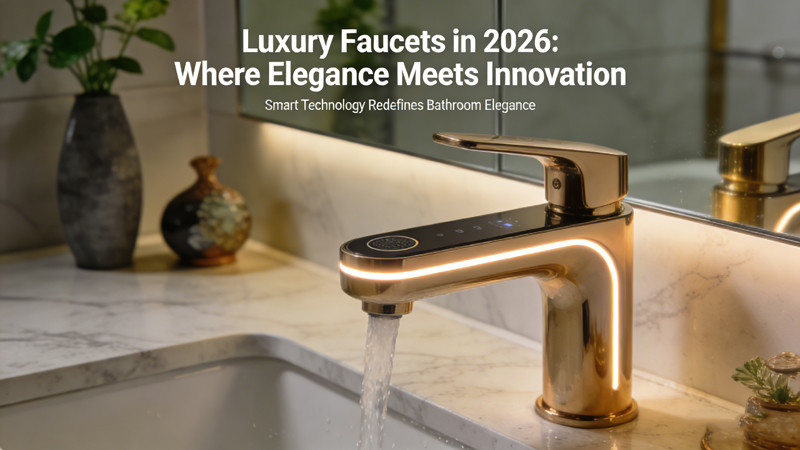If you’ve ever turned off a faucet and heard a loud banging or thudding noise in your pipes, you’ve experienced something plumbers call water hammer. It can be startling the first time you hear it—almost like someone is hitting your wall with a hammer. While it may sound alarming, water hammer is a fairly common plumbing issue. Left unchecked, though, it can damage your pipes, fittings, and even your faucet over time.
In this article, we’ll dive into why some faucets are more likely to cause water hammer noise, what’s happening inside your plumbing system, and how to prevent or fix the problem.
What Is Water Hammer?
Water hammer is the shock wave created when flowing water is suddenly stopped or redirected. Imagine water moving through your pipes at high speed. When you shut off a faucet quickly, the flow doesn’t just stop instantly. The momentum of that water pushes against the closed valve, causing a sudden spike in pressure. That surge creates vibrations in your plumbing system, which travel through the pipes and manifest as the banging sound you hear.
The phenomenon is called ‘hammer’ because of the sharp, metallic knocking sound that often echoes through walls and floors.
Why Some Faucets Cause Water Hammer Noise
Not all faucets cause water hammer. The design of the faucet, the type of plumbing in your home, and even the speed at which you close the valve all play a role. Here are the main reasons some faucets are more prone to producing this noise:
1. Quick-Closing Valves
Modern faucets, especially those with single-handle designs or cartridge-style mechanisms, often shut off the flow very quickly. Unlike older compression faucets that gradually reduce water flow as you turn the handles, these newer designs can go from fully open to fully closed in a fraction of a second.
That rapid closure makes the shock wave stronger, increasing the chance of water hammer.
2. High Water Pressure
If your home’s water pressure is too high—say, above 60–70 psi—the impact of water hammer is much more noticeable. With higher pressure, the water moves faster, so the sudden stop generates a louder, stronger banging noise. Faucets on upper floors or closer to the main supply line often reveal this problem first.
3. Loose or Unsupported Pipes
Even if your faucet closes quickly, well-secured pipes can absorb some of the shock. But if pipes are loose, not clipped properly, or run through walls without adequate support, they rattle and amplify the hammering sound. The noise might seem to come from the faucet itself, when in reality it’s the nearby pipe shaking.
4. Air Chambers Filled with Water
Many plumbing systems are designed with air chambers—small vertical pipes filled with air—to cushion the pressure surge when a faucet closes. Over time, these chambers can fill with water and lose their ability to absorb shock. Faucets in older homes are especially prone to hammering if these chambers are no longer functional.
5. Long Pipe Runs or Complex Layouts
Homes with long stretches of pipe or lots of bends and elbows in the system often create conditions where water hammer is more noticeable. Certain faucets at the end of these runs become the ‘trigger points’ where the noise is heard most.
Is Water Hammer Dangerous?
While the occasional bang may not damage your plumbing right away, repeated water hammer can weaken joints, fittings, and valves over time. In extreme cases, it can cause leaks, pipe bursts, or damage to appliances like washing machines, dishwashers, or ice makers.
For faucets themselves, the constant jarring can shorten the lifespan of cartridges, seals, or washers, leading to drips and the need for repairs. In short: water hammer is more than just a nuisance—it’s something worth addressing.
How to Fix or Prevent Water Hammer
Fortunately, there are several solutions, depending on what’s causing the problem:
1. Install Water Hammer Arrestors
These small devices contain a sealed air or gas chamber that cushions the pressure surge. Plumbers can install them near problem faucets, at appliance hookups, or on main lines. Unlike old-fashioned air chambers, arrestors don’t lose effectiveness over time.
2. Check and Adjust Water Pressure
Using a simple pressure gauge, you can measure your home’s water pressure. If it’s too high, a plumber can install or adjust a pressure-reducing valve (PRV). Keeping pressure in the recommended range (40–60 psi) reduces hammering and protects your entire plumbing system.
3. Secure Loose Pipes
If the banging sound echoes through walls or ceilings, it may be due to pipes rattling against studs or joists. Adding pipe clamps, brackets, or cushioning supports can quiet the system dramatically.
4. Drain and Reset Air Chambers
In older homes, restoring air chambers can sometimes fix the issue. To do this, shut off your main water supply, open all faucets to drain the system, then close them and turn the water back on. This allows air to refill the chambers. While this may not work long-term, it can provide temporary relief.
5. Upgrade Your Faucet
If the problem consistently happens with one faucet, replacing it with a design that doesn’t shut off quite as abruptly may help. Some faucets have built-in mechanisms that control the rate of closure, reducing the likelihood of hammering.
Everyday Tips to Minimize Water Hammer
- Avoid slamming faucets shut—close them more gently when possible.
- Pay attention to noises when using appliances like dishwashers and washing machines, as they also have quick-closing valves.
- Schedule regular plumbing inspections, especially if your home is older or you’ve noticed other water pressure issues.
Final Thoughts
Water hammer may sound dramatic, but it’s a common plumbing issue with straightforward solutions. Faucets with quick-closing valves, high water pressure, or unsupported pipes are the usual culprits. While the noise itself is unsettling, the real concern is long-term damage to your plumbing and fixtures.
By addressing the root causes—whether by installing water hammer arrestors, adjusting water pressure, or upgrading your faucet—you can restore peace and quiet to your home while protecting your plumbing system.<
 WOWOW Faucets
WOWOW Faucets